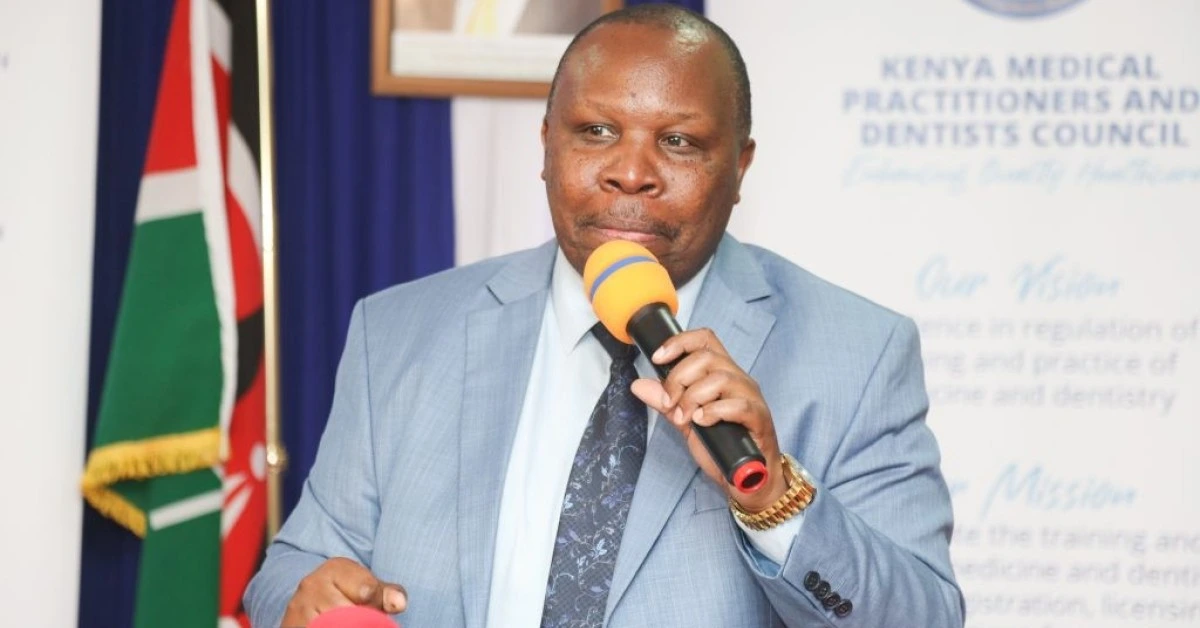
KENYA – The Kenya Medical Practitioners and Dentists Council (KMPDC) has ordered health facilities operating in restricted areas, such as petrol stations and residential buildings, to relocate within six months.
In a statement on their official X account on March 12, KMPDC emphasized that these locations are unsuitable for healthcare operations due to safety concerns.
“Health facilities located in restricted areas… must relocate within six months,” the council stated, warning that non-compliance would result in closure.
The directive aims to protect patients and ensure medical services are provided in a safe and conducive environment.
KMPDC cited risks such as exposure to flammable materials, poor infrastructure, and disturbances that could compromise patient care as key reasons for the relocation order.
The Council, responsible for regulating medical training, practice, and licensing, has previously shut down several non-compliant facilities.
In March 2024, KMPDC closed 80 facilities in Kajiado County for failing to meet licensing standards. “Some facilities were unlicensed, while others employed unregistered personnel,” said KMPDC CEO David Kariuki.
A report by Auditor General Nancy Gathungu in July 2024 revealed that over 9,000 health facilities were not licensed, raising concerns about service quality.
The audit found that out of 16,527 registered health facilities in 2023, only 7,518 (46%) were licensed. “This means 56% of health facilities were operating without valid licenses,” the report stated.
Fully licensed facilities must meet strict equipment, staffing, and operational standards to ensure quality care.
Crackdown on unlicensed aesthetic clinics
Meanwhile, the Ministry of Health has ordered the immediate closure of unregistered aesthetic clinics and beauty spas following a national compliance assessment.
Public Health Principal Secretary Mary Muthoni instructed KMPDC to shut down facilities operating without licenses. The assessment focused on clinics performing plastic surgery and invasive procedures such as microblading.
Of the 26 aesthetic clinics inspected, three had pending registration applications, while three were operating illegally. Among 102 beauty spas assessed, seven were found to be conducting medical procedures without certified personnel.
Violations were most prevalent in Nairobi, Mombasa, Nakuru, and Eldoret. The findings showed that 40% of inspected facilities lacked essential medical supplies, while 25% failed to meet infection control standards, posing significant health risks.
In response, PS Muthoni issued several directives:
The crackdown was triggered by the death of Lucy Wambui Ng’ang’a, who suffered complications during a liposuction procedure at Omnicare Medical in Nairobi. Liposuction, a procedure that removes fat from targeted areas, can be fatal if performed under unsafe conditions.
“The Ministry of Health is concerned about the death of Ms. Lucy Wambui… at Omnicare Medical Limited,” Muthoni stated, underscoring the urgency of the crackdown.
XRP HEALTHCARE L.L.C | License Number: 2312867.01 | Dubai | © Copyright 2025 | All Rights Reserved